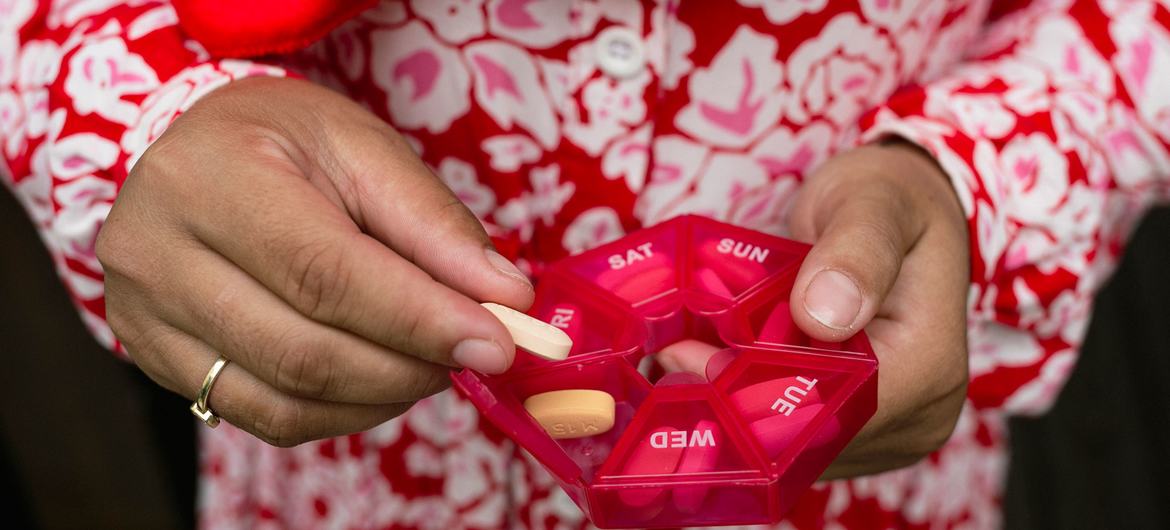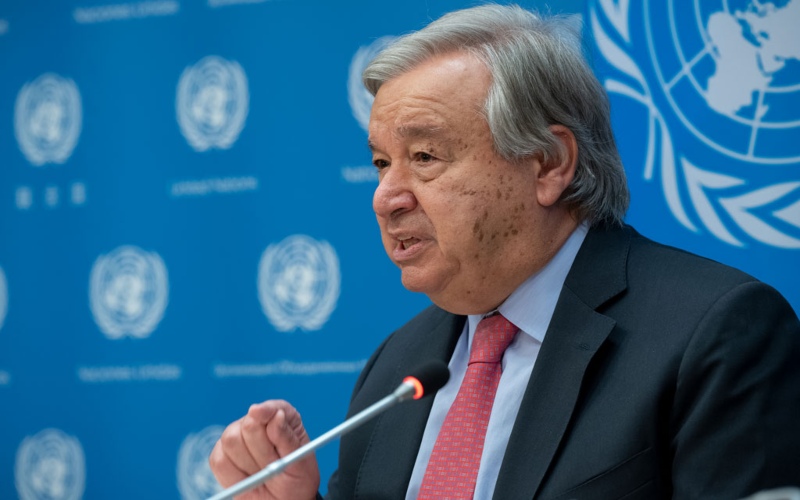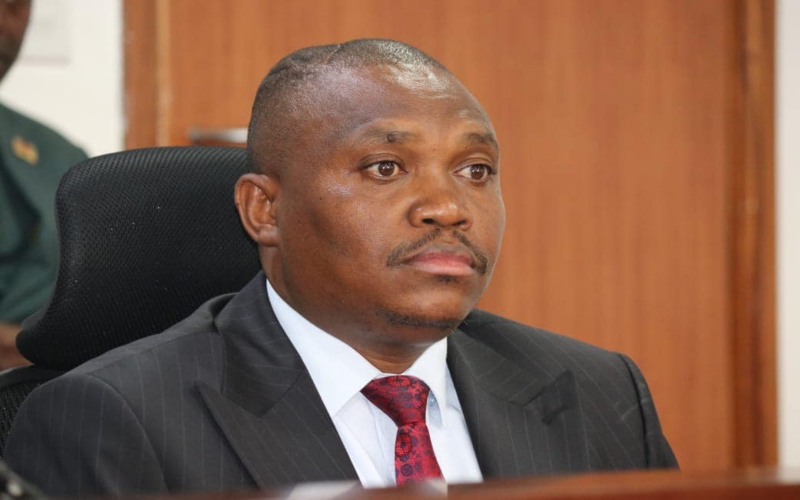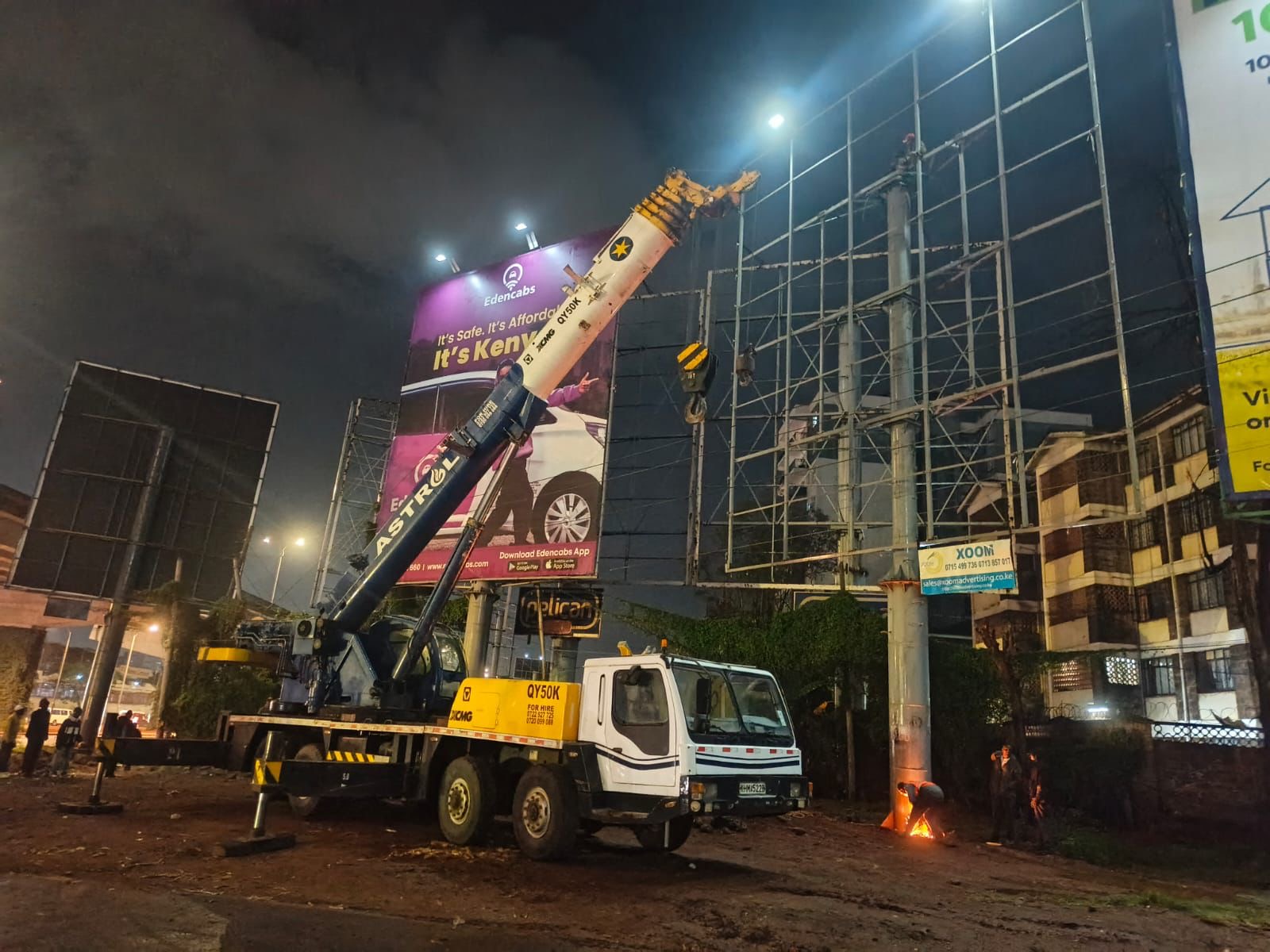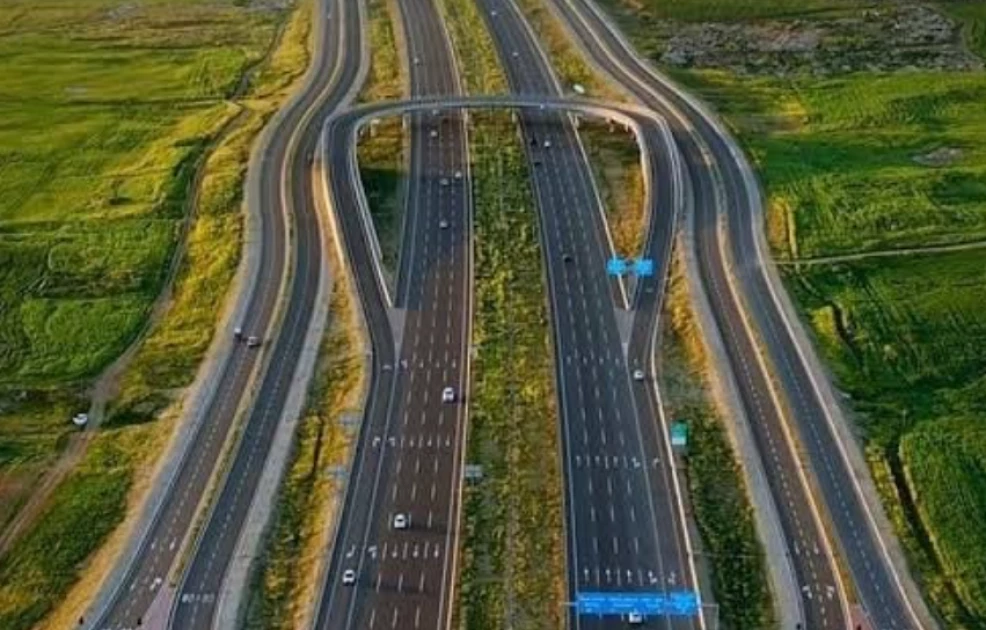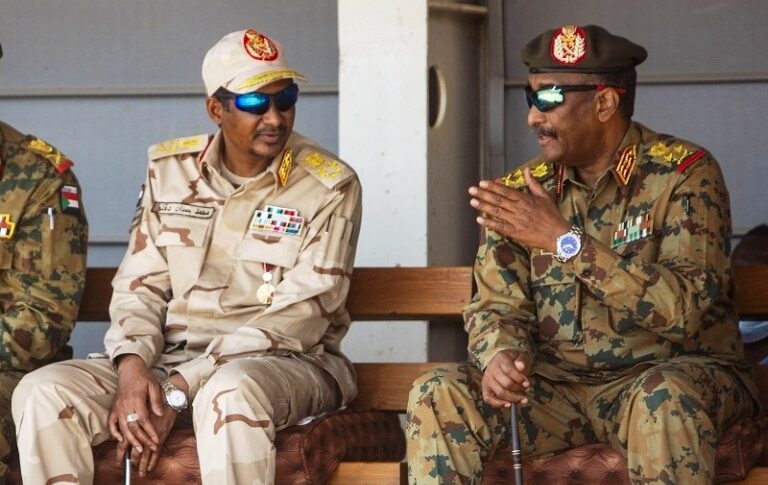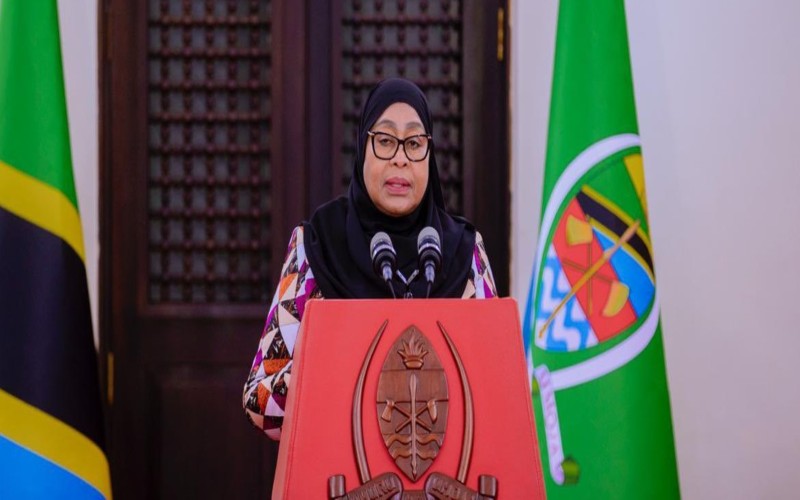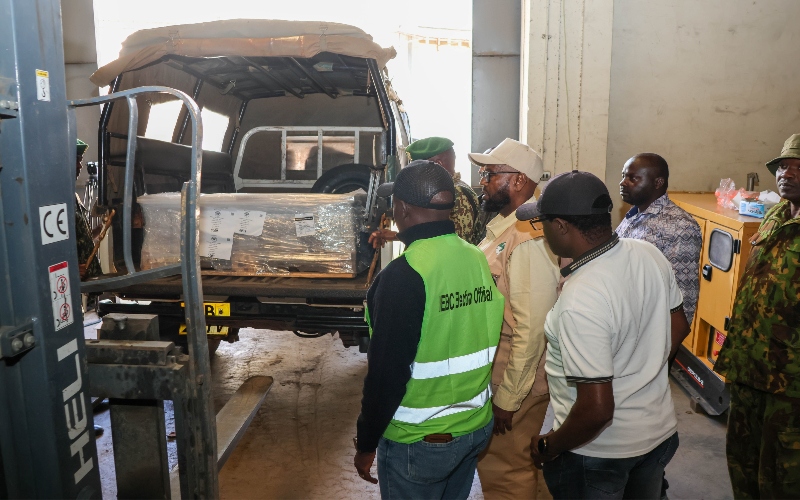How the EU aims to reinvent its partnership with Africa as China tightens its grip
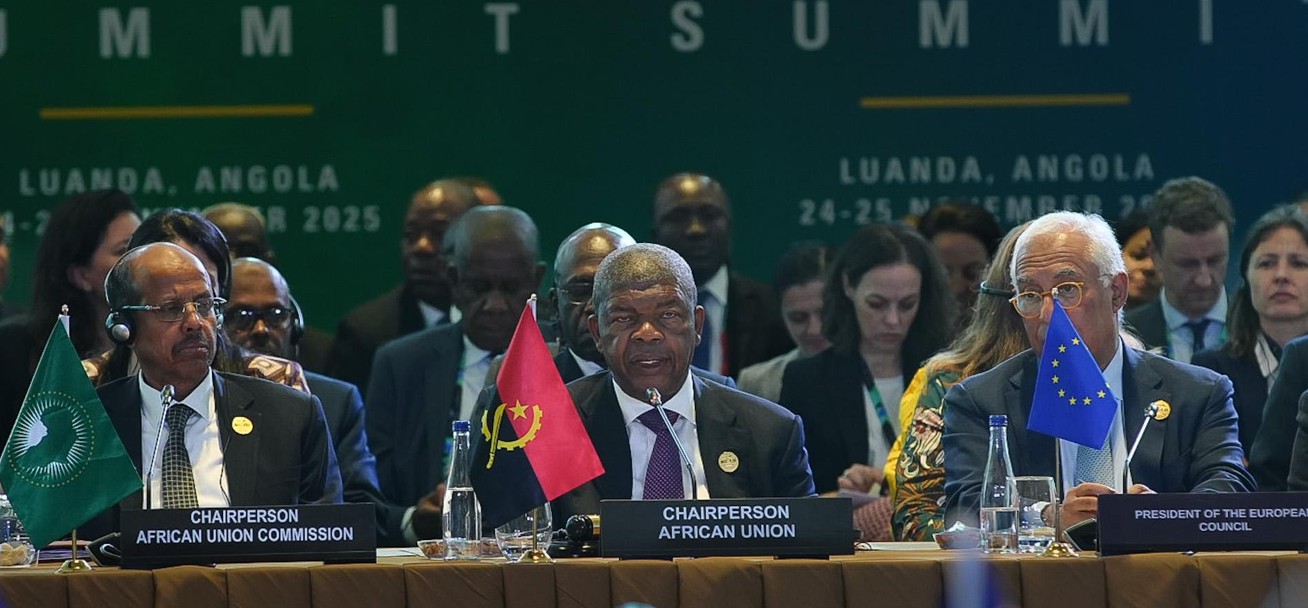
Africa, the world’s youngest continent with 40 per cent of its population under 15 compared to Europe’s 16 per cent, faces growing pressure to provide adequate education, jobs, and housing for its rapidly expanding youth.
Maria Magdalena and her four children live in a small wooden hut on the sandy Ilha do Cabo peninsula in Angola. From her home, she can see cargo ships lined up as they wait to enter the harbour in Luanda, the country’s capital.
Although Angola is rich in natural resources, most citizens still live in deep poverty. Magdalena also has a view of Luanda’s skyline across the bay, but she is not following the major summit taking place in the government district. Managing her daily survival takes priority.
More To Read
"I urgently need work. Without work, I cannot feed my children," she said.
In Luanda, the African Union (AU) and the European Union (EU) are holding their seventh summit under the theme “promoting peace and prosperity through effective multilateralism.” Together, the two blocs represent 82 countries with nearly 2 billion people.
This year, the pressure is especially high. "As we all know, uncertainty prevails on the international stage. The established norms of international geopolitics are being challenged," Mahmoud Youssouf, chair of the AU Commission, said ahead of the conference.
Global tensions underscore his point. Russia continues its war in Europe. US President Donald Trump has introduced sweeping tariffs and disrupted World Trade Organisation rules. China is pushing aggressively into global markets. Meanwhile, conflicts in Africa are worsening — Sudan faces a brutal war, and jihadist violence is expanding in the Sahel.
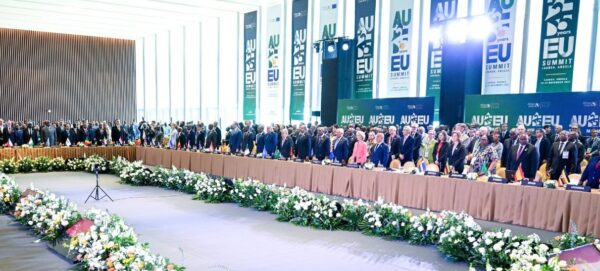 African and European leaders meet at the 7th AU-EU Summit in Luanda, Angola, to discuss cooperation on peace, security, and prosperity. (Photo: European External Action Service)
African and European leaders meet at the 7th AU-EU Summit in Luanda, Angola, to discuss cooperation on peace, security, and prosperity. (Photo: European External Action Service)
Africa is also suffering heavily from climate impacts. "Droughts destroy livelihoods. It's a dangerous mix. And people take dangerous routes across the Atlantic and the Mediterranean," German Chancellor Friedrich Merz said at the summit.
Before heading into the plenary hall, Merz joined an informal meeting of EU leaders. Even here in Luanda, discussions focused on how to handle Russia’s war against Ukraine.
For Merz and other leaders, the summit is a reminder that they are governing in crisis mode. Still, Africa and Europe hope to strengthen cooperation. Their final declaration calls for a world order "based on international law and effective multilateralism."
The European Union remains Africa’s largest trading partner and investor. According to European Commission President Ursula von der Leyen, one-third of all African exports go to Europe.
Africa’s critical raw materials — rare earths, copper, cobalt, and lithium — are vital for Europe’s energy transition and industries. But the competition is intense, and many African states want to avoid one-sided dependencies.
"The world does not consist of just one or two countries. We work with everyone who is open to us," said Angola’s President Joao Lourenco, the current AU chair. "We are open to the world."
"We don't want to leave the continent to others," Merz warned, pointing mainly to China.
The Belt and Road Initiative has led to large Chinese investments in African ports, roads, and airports — including Luanda’s new international airport.
"China helped rebuild Angola after the civil war in 2002 with loans and infrastructure projects," Vandre Spellmeier of the German Industry and Commerce delegation in Angola told DW.
In his view, it is "not too late for the European Union." Angola is now trying to reduce the heavy debt it owes China.
"This future African and European cooperation should emphasise the exchange of knowledge and skills that contribute to transforming African local economies," Hermine Sam, Programme Coordinator South at the German Marshall Fund, told DW.
Otherwise, she warned, the familiar pattern will persist: "Raw materials leave cheaply and return expensively processed."
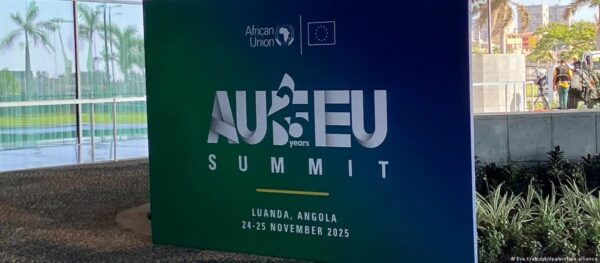 At the seventh AU-EU summit in Angola, Europe ramped up efforts to increase trade and cooperation with African states. (Photo: Eva Krafczyk/DPA/Picture Alliance)
At the seventh AU-EU summit in Angola, Europe ramped up efforts to increase trade and cooperation with African states. (Photo: Eva Krafczyk/DPA/Picture Alliance)
Olaf Wientzek, head of the Konrad Adenauer Foundation’s development dialogue in Brussels, said this is exactly where the EU can make a difference. "Strengthening local processing capacities, that's where Europe can score points against China," he told DW.
He acknowledged that European procedures are often stricter and slower.
"But Europe wants to give the economy more participation than China."
Many see the EU’s Global Gateway Initiative as its answer to China’s investments. The strategy aims to support infrastructure using EU financing and private capital.
One of its flagship projects is the Lobito Corridor — a railway designed to link key mining regions in Angola, the Democratic Republic of Congo, and Zambia to the Atlantic coast. The plan also includes developing agricultural, industrial, and logistics businesses along the route.
The EU views it as a model project.
"While we connect Africa to global markets, we are also supporting trade within your continent. I think this is the best way for African companies to scale up and prepare for global competition," von der Leyen said.
Germany’s Merz backed this approach.
"The European single market is a great success story and the largest peace project Europe has ever seen. And it is precisely against this backdrop that Germany has supported the Pan-African Free Trade Area from the outset," he said.
 AU Commission Chairperson Mahmoud Ali Youssouf (right) talks with French President Emmanuel Macron at the 7th AU–EU Summit in Luanda, Angola. (Photo: African Union)
AU Commission Chairperson Mahmoud Ali Youssouf (right) talks with French President Emmanuel Macron at the 7th AU–EU Summit in Luanda, Angola. (Photo: African Union)
But critics argue the EU still misses the mark. "In its conception, Global Gateway was not developed in consultation with African stakeholders and overlooked African priorities," Hermine Sam said. She added that the EU is often accused of "making big speeches but delivering little, especially compared to China."
Africa is the youngest continent in the world — 40 per cent of its population is under 15, compared to just 16 per cent in Europe. That young population needs education, jobs, and housing.
"The young African generation, which is creative, dynamic, and rapidly growing, is one of the greatest assets for our shared future," European Council President Antonio Costa said.
But what remains after two days of high-level meetings in Luanda, a city that declared a public holiday to host the summit? Back on Ilha do Cabo, Magdalena avoids politics as she cooks over a small charcoal fire. Yet she still carries her own quiet hopes.
"I'm young. I really need work urgently."
Top Stories Today

